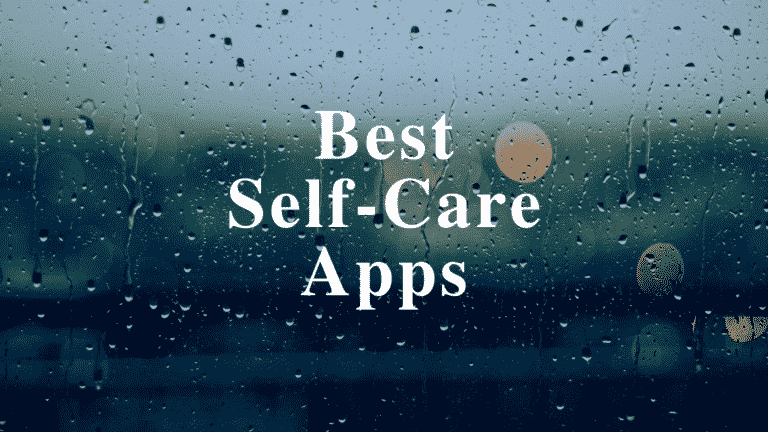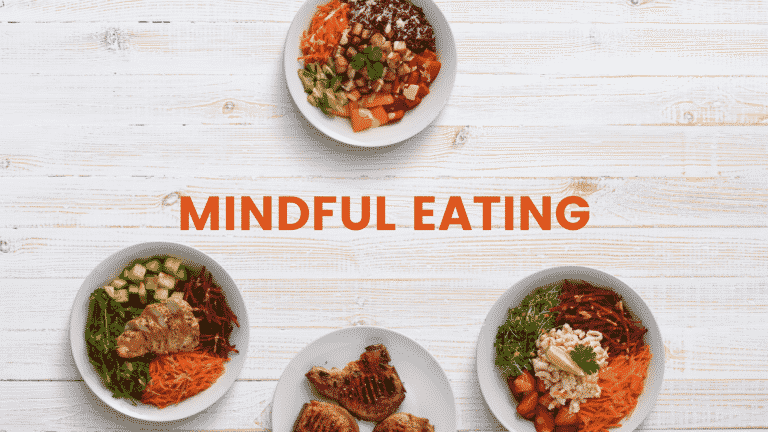7 Ways to Build Resilience and Handle Challenges
Published on April 18, 2020 – Last Updated on March 29, 2022
When times get tough, it’s sometimes hard to see anything positive about the future. But, by building resilience, you make yourself stronger and less vulnerable to stress making yourself more resistant to the situations life throws at you.
Resilience helps you through those tough times by changing how you look at things.
What is Resilience?
Life is not a smooth paved road. It comes with twists, turns, and potholes. Resilience is how we navigate these obstacles in the street. There are three types of blocks you can experience on your journey through life.
- Speedbumps– These are the small things that will slow you down, but don’t change your direction. You don’t have to do anything differently to reach your goal. For example, your flight is grounded because of the weather and you have to wait until the next day to leave in order to get home.
- Detours– These are things you have to go around. You may have to shift direction a little, but you can get back on track after you go around or solve the problem. An example would be, you want to buy a house, but housing prices have risen so you need to wait 6 months or get a second job so you can save the extra money for the down payment.
- Roadblocks– These are obstacles or problems that cannot be changed and make reaching your goal impossible. For instance, you played basketball in high school and started playing in college, you injure your knee and the doctor tells you, you can’t play basketball anymore or your injury will get worse.
This is where reliance comes in. It’s your belief or attitude about the problem or obstacle that determines what happens on your journey. Resilience helps you turn those roadblocks into detours.
Resilence allows you to be disappointed and frustrated but see the roadblock as temporary. For instance, you may not have that career you wanted as a basketball player, but you can indeed become a basketball coach. Resilience is your ability to adapt to adversity.

How Do You Build Resilience?
There are many things that people do to build their levels of resilience. You can also read a book, create a gratitude list, make sure you eat well and exercise, take care of yourself, or talk to someone about the problem/challenge.
One thing we often forget is to give ourselves time and space:
– Take some time for ourselves – spend some time every day meditating and focusing on something we enjoy until our heart rate slows down;
– Don’t allow too much stress into our lives – create healthy boundaries with those around us, with work deadlines and things like this;
– Allow ourselves opportunities for endings as well as beginnings (since life is full of both) such as booking holidays
There are several ways to build resilience or make it stronger. Here are easily achievable ways to build your strength.
Take Care of Yourself and Bounce Back Your Resilience
Your health and wellbeing are essential to the way you handle stress. So make sure you are practicing self-love by:
- Eating a healthy diet
- Exercising
- Find me time for sanity breaks
- Get at least 7-8 hours of sleep
- Manage stress
Eating a healthy diet helps you have a healthy immune system, and exercise not only strengthens your heart but puts you in a better mood. Care about your whole self, both mind, and body.
Take Care of Your Home
Having a tidy and clean home is essential for your mental health. Create a space where you can relax. Whether it’s an art corner, a reading nook, or a cozy bedroom, make sure there is one room in your house that feels like a refuge.
Take Care of Friendships
People with healthy friendships are more likely to be happy and live longer. A social network is crucial for avoiding bad stress (loneliness) and experiencing good stress (try new things!). Try joining a club or volunteering in your free time.
Take Care of Your Pet
Pet owners with healthy pets not only have less heart disease but lower blood pressure as well. In addition, pets can provide a fun, loving distraction that will help you deal with problems in healthy ways.
Take Care of Your Career
Having an overall positive experience at work can significantly impact your overall health and happiness. Make sure you get along with your co-workers and bosses, take growth opportunities, and find ways to recharge your energy every day.
Take Care of Your Relationships
Having a good relationship with yourself is essential, but having healthy relationships is also vital for happiness! So it’s necessary to make sure you are communicative in intimate relationships and find time for self-reflection where you can talk things through with others.
Practice Gratitude while keeping a Journal
Keep a gratitude journal. Make a habit of writing down three things that happened during the day that you are grateful for, even if it’s small.
Practicing gratitude helps push out feelings of negativity. When you practice gratitude, it helps change your thought processes and fosters hope. In addition, it helps your brain release those feel-good chemicals that give you a sense of wellbeing.
You can build a sense of wellbeing and positive thinking that will give you the tools to cope with stress.
Practice gratitude for at least 21 days (about as long as it takes to create a new habit) and see if your perspective on life doesn’t shift in a more positive direction! Congratulations, you now have the tools to get through your day feeling happier! The key to gratitude is to be consistent and practice it every day.
Helping Others is an Effective Way to Build Resilience
Are you feeling stressed? A new study suggests that helping others may be just the thing you need to boost your emotional wellbeing.
The study, published in Social Psychological and Personality Science, found that when people experience difficult emotions — including stress, anxiety, or feeling down — they are more likely to feel better if they help someone else.
Drs. C. Daryl Cameron and Amie M. Gordon, who co-led the study, found that people who had recently experienced a problematic emotion were more likely to find happiness by helping others than they were if they tried to suppress their negative feelings or kept them to themselves.
You benefit in several ways:
- Helps with long-term health
- Makes you happier
- Can be contagious
- Relieves stress
- Gives a sense of satisfaction
Helping others gives you a sense of purpose and helps with mental wellbeing.
Connect with Family and Trusted Friends
Humans are wired for connection. We are social beings. Having someone to lean on takes the burden of solving everything yourself, even if the other person does nothing.
Connecting with friends and family is not only good for your mental wellbeing, but it also improves your physical wellbeing. Science has determined that the lack of social relationships and quality relationships increases the risk of death.
The bottom line is if you’ve been a little complacent about your relationship with friends and family lately, then start to reconnect, your body will thank you!
Intentions
Your intentions help shape your attitudes and beliefs. For example, intentions make you see the world as excellent or a wrong and unfair place. Positive affirmations can help set or reset your choices. Write them down and repeat them throughout the day or record them and listen to them. Acting intentions practiced habits can strengthen your resilience.
To be resilient, you need to know your intentions and take proactive steps towards realizing those goals.
You can start small, but always take the first step. It doesn’t have to be a big one. Just make sure it is a little one!
Here are some intentions you can start with:
- “I have everything I need today”
- “All is well”
- “I step into this opportunity with courage and conviction”
- “New doors open up all the time”
- “One door is closed, but another one will open up”
- “I can rise above difficulty and see my path clearly”
When you set intentions it changes the energy around you and your mindset.
Accept what You Cannot Change
Change happens. Most of the time, you can’t control the things that change. You can’t keep a loved one from getting sick, and you can’t control other people’s behavior. You can’t prevent a job loss.
Instead of ruminating about what it should have been or could have been, accept what you can’t change. Lots of things happen in our lives that we can’t control. It’s how we handle them that counts.
If you look at the change in a positive way, even though it may bring on stress, you can see other opportunities hiding in the fog.
I am no longer accepting the things I cannot change. Instead, I am changing the things I cannot accept.
Resilience is about how you handle life’s difficulties. It’s not about what happens to you but how you react to what makes all the difference in your life.
You can save yourself lots of heartaches if you become proactive and resilient instead of a victim of life.
Cultivate a Meditation Practice for Resilience

Diagram of Resilience
Meditation is geared to help you meet life’s challenges making you more resilient. Meditation teaches you to come back to the present and stop going over the past in your head repeatedly.
Meditation enhances the skills that make you more resilient. Here are some of the skills that meditation fosters that help builds resiliency.
Meditation on resilience
Doing things that promote self-awareness can step back and observe your behavior, thoughts, and emotions. It helps you see the bigger picture without being too attached to the outcome.
Accepting your thoughts, feelings, and emotions with no judgment. It helps you stand separate from the experience without getting too involved in it, allowing you to cope better.
Be mindful of how others behave towards you to respond rather than react to them.
Meditation is simply observing what is happening around you, inside of you, and projecting yourself into the future.
When you meditate on resilience, you can intend to be resilient. This is where the magic happens.
Your mind becomes a powerful tool when you begin to master your thoughts and emotions instead of letting them control you.
Focus
Meditation helps you increase focus so you can concentrate on your goals and what lies ahead instead of wandering back to the past. For example, one study showed that participants in an 8-week mindfulness meditation course increased attention span. This attention span allows us to stay focused on the positive and let the negative go.
Creative Problem Solving
Meditation can also help with insight problem-solving. For example, a study done in China had participants problem-solve ten questions before and after a break. After they answered the questions the first time, they were asked to rest or meditate.
Researchers found that the participants who meditated could solve more of the problems they had missed before. In addition, those who were told to count breaths and raise their hand after so many breaths (creating awareness) could solve even more problems.
Meditation helps reduce your tendency to overlook adaptive ways to solve problems from experience.
This demonstrates meditation’s ability to help you problem-solve and turn that roadblock into a detour.
Anxiety
Meditation helps reduce anxiety. General anxiety disorder is characterized by constant worry and physiological stress. Participants had lower stress and anxiety levels after learning a meditation program in a study published in The Journal of Clinical Psychology.
Having lower anxiety levels means reduced stress, which allows you to concentrate on positive thoughts instead of negative ones.
Self-Awareness
Knowing yourself better allows you to grow and change. Meditation gives you a better understanding of who you are and how you relate to others.
Studies show that those who meditate regularly are more self-aware and have a more positive outlook about themselves and those around them.
Meditation helps you learn to accept yourself without judgment. This changes your thought process. When you reach a level of self-awareness, it helps you become more resilient.
Emotional Health Helps You Build Resilience
The most significant part of building resilience is how you perceive problems. Meditation helps improve your emotional health to help with the positive thought process.
One study that used Mindful Based Stress Reduction (MBSR) to help treat anxiety disorders followed up with participants 3 years later. Researchers determined that participants were still practicing meditation, but their depression and anxiety were also reduced, giving them a better outlook on life.
Meditation has also been found to trigger biological processes. For example, a study published in 2003 took healthy employees in a work environment and did an 8-week clinical mindful meditation training.
They found more activity on the left side anterior portion of the brain, which controls positive thoughts. They also found that the participants had a greater production of antibodies when given the influenza vaccine.
Not only does meditation help with positivity and optimism, but it also helps boost the immune system.
Building resilience helps you weather any storm that comes your way. As you travel down the road of life, it will be a bumpy ride. Resilience will help you navigate the journey, so you don’t come to a complete halt in the middle of the road.
Meditation is an easy way to help you:
- Feel less stressed
- Relax
- Boost your immune system
- Have a positive out on life
- Love yourself
If you want to cultivate your meditation practice to build resilience, MindTastik can help.







